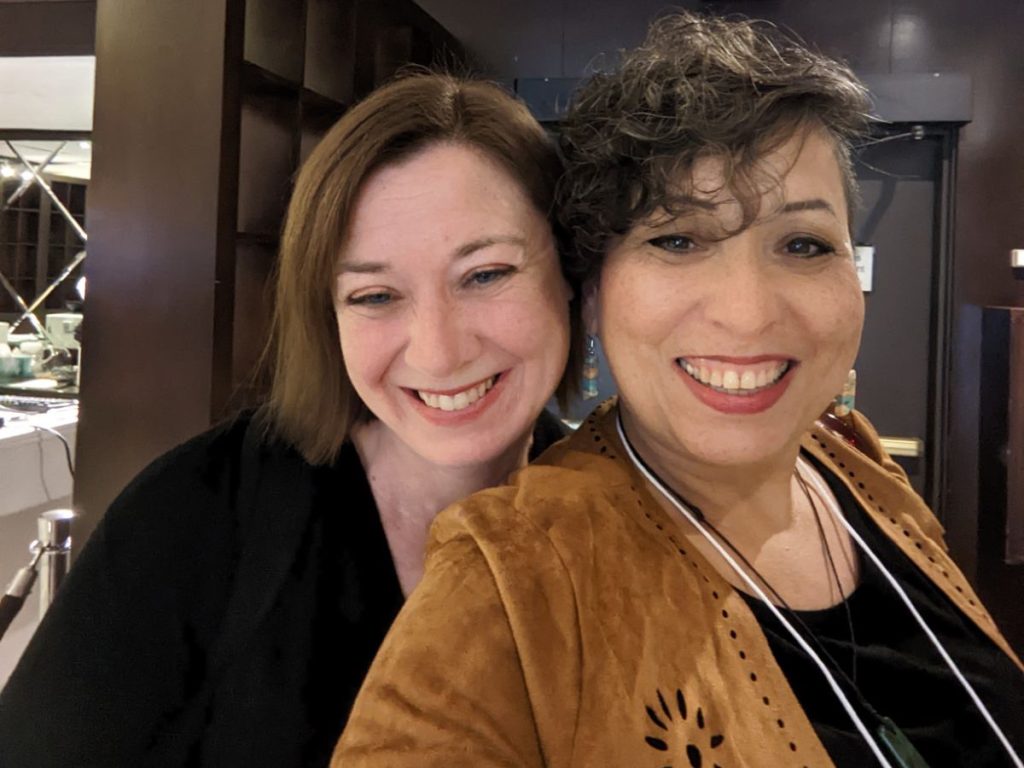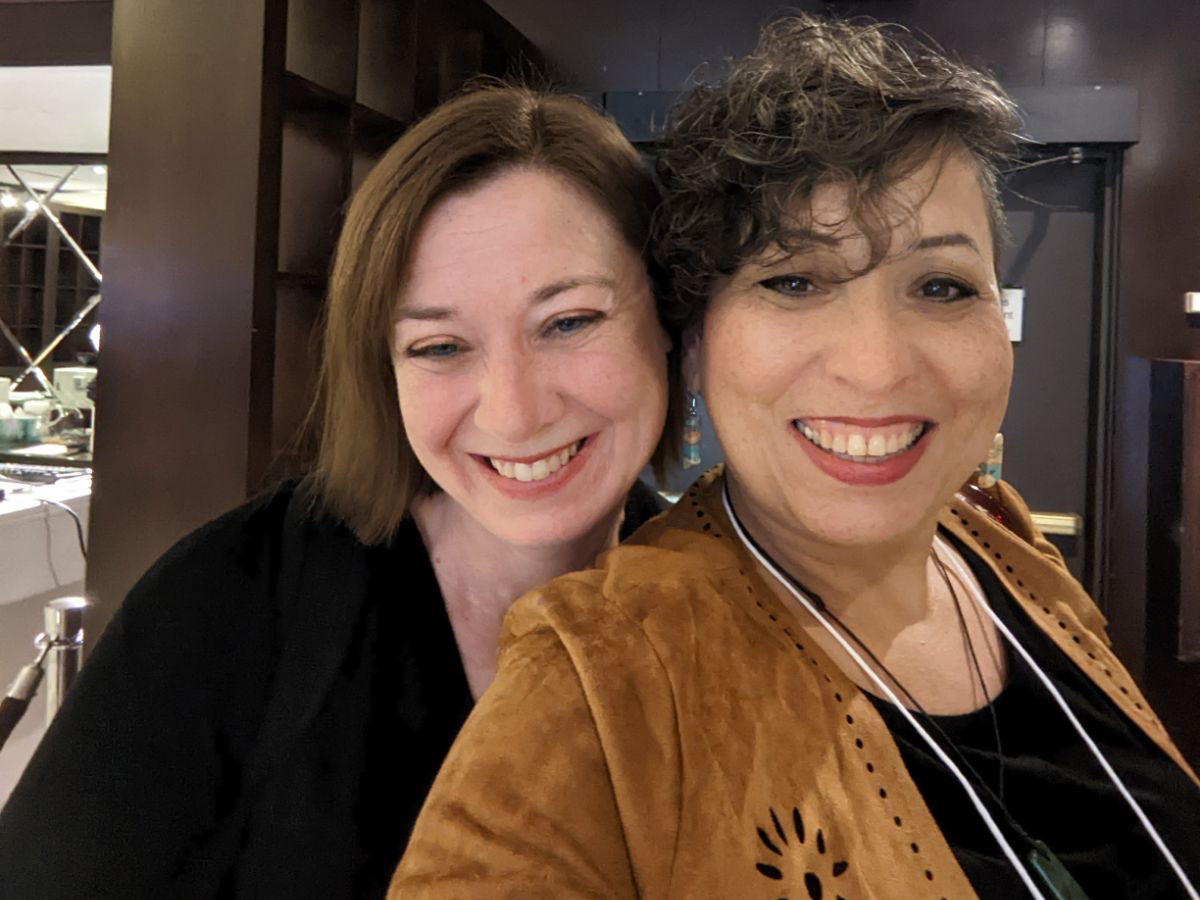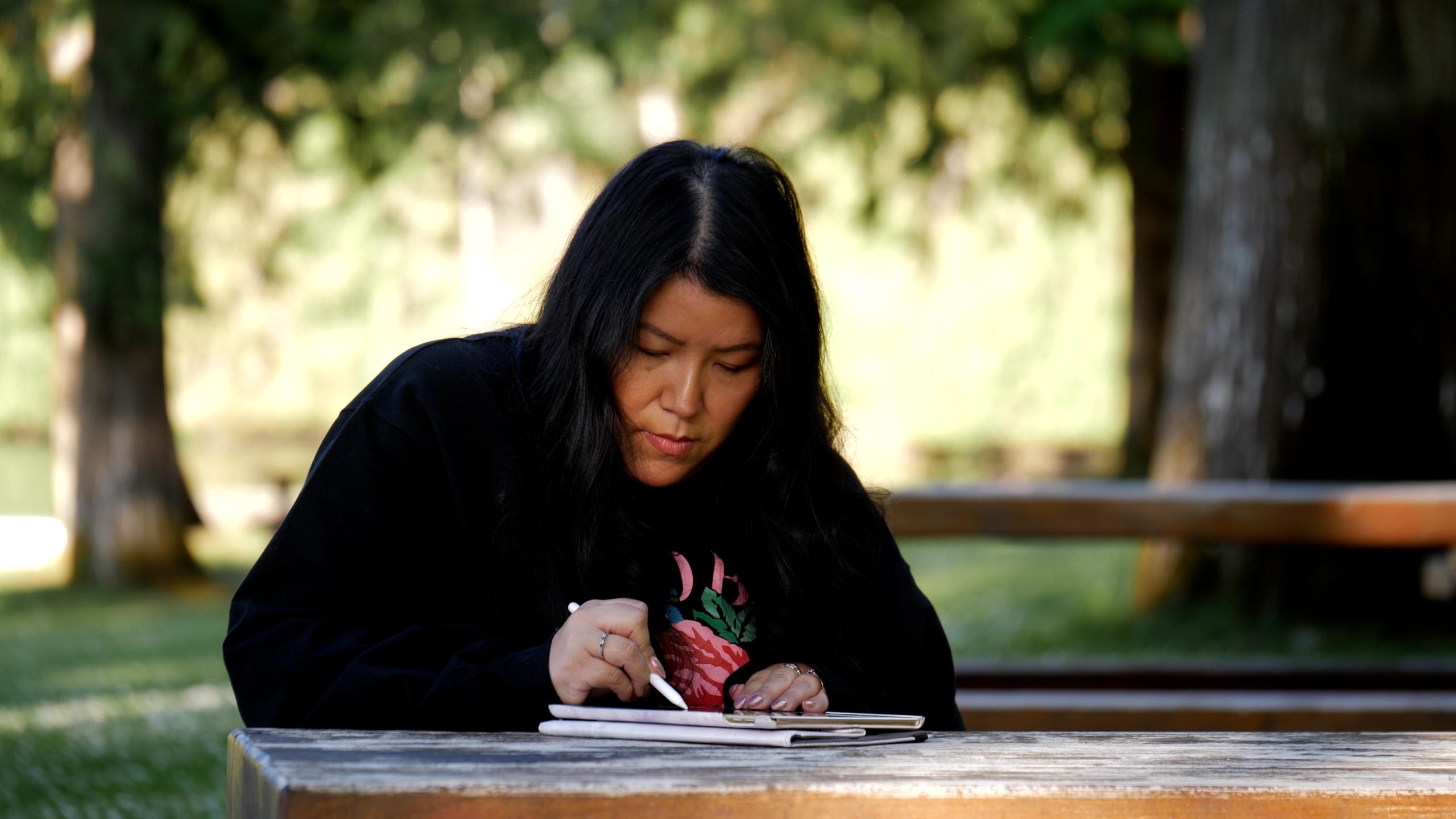Callison co-leads $1.4M USD Respectful Terminology Platform Project

Two Indigenous scholars from the east and west coasts are working together to develop a dynamic, multilingual platform for Indigenous terminology that can be used in libraries, archives, museums, and information systems worldwide.
Camille Callison, UFV’s University Librarian, and Dr. Stacy Allison-Cassin, an assistant professor at Dalhousie University in Halifax, Nova Scotia, are co-leaders of the Respectful Terminology Platform Project (RTPP), which is funded with a two-year grant for $1.4-million USD from the Mellon Foundation. The grant is situated at Dalhousie University and Dalhousie is partnering with UFV. Callison says it will address harmful, racist, stereotypical, and antiquated terminology that exists right now in places like libraries that provide access points to information.
When you’re on a library computer and you see a word in blue that’s linked to other information, that is an access point or subject heading. Callison, who is from the Tāłtān Nation located in northern B.C., the Yukon, and Alaska, says many of the vocabularies used for these access points have been developed from a white, male, Christian, heterosexual perspective.
Sometimes, she says, Indigenous people are having to search for their history using words that they consider a slur.
“For example, there is a derogatory word that is used to describe Indigenous women,” Callison says. “We already know the dominant society hasn’t treated Indigenous women in a good way. Seeing those slur words by colonial constructs is not appropriate, and it affects how others view Indigenous women. Instead of seeing them in a respectful way, they’re seeing them through a derogatory term.”
Allison, who is from Métis Nation of Ontario, adds that impacts of these terms stretch far beyond library systems.
“These systems of terms are widely used in all kinds of systems, from government to health care to entertainment,” she says. “With the increased use of AI tools such as Chat-GPT that draw content from the internet, the need to address problematic terms is pressing.”
Callison adds that the vocabularies currently in use are not always describing Indigenous peoples as if they are still a current, rich, and vibrant culture with their own language.
“We are often talked about as if we are in the past, as if we are history and no longer here,” she says.
Indigenous names are at the core of the project.
Article 13 of B.C.’s Declaration on the Rights of Indigenous Peoples Act states that Indigenous peoples have the right to revitalize, use, develop and transmit to future generations their histories, languages, oral traditions, philosophies, writing systems and literatures, and to designate and retain their own names for communities, places, and persons. That right is also recognized in the United Nations Declaration on the Rights of Indigenous Peoples, and Callison sees the RTPP as an important move in that direction.
“What’s in a name is very important to Indigenous people,” she explains. “There are many layers of meaning, and many stories attached to those names. We pass along language and knowledge and history through naming practices. When we receive our own name, that’s when we receive our purpose for what we do in life, to live up to our name.”
Allison explains that “Using appropriate names is vital for recognition and the treating respect for Indigenous sovereignty and the project is examining ways to embed Indigenous data sovereignty and governance throughout the project—something that is missing from the majority of existing systems”
Callison states that RTPP is not simply about modifying terms and names.
“With an Indigenous worldview, we’re trying to create respect and reverence for others regardless of their race, religion, gender, or societal class,” she says. “It’s critical to create that reverence in the way we talk about them and address them.”
The Mellon Foundation is funding the RTPP through its Public Knowledge program, which is focused on the accessibility and preservation of cultural knowledge and information. The project is also receiving support from the National Indigenous Knowledge and Language Alliance, of which Callison is chair.
Over two days (April 29 and 30), RTPP stakeholders met at UFV Chilliwack’s Gathering Place to take the first steps on a long journey.
“We’re in phase one now, and I’d realistically say there’s going to be four or five phases before it’s sustainable and adaptable to things changing in the future,” Callison says. “Currently we are developing a shared vision about where we want to go and how we will get there at the RTPP Foundation Gathering. What will the challenges and barriers be? I know the waters aren’t always going to be smooth, but I am very excited about the future of this work making a meaningful difference in the way information systems refer to names, placenames, and other tangible and intangible knowledges related to First Nations, Inuit, and Métis people.”
RTPP is grateful for guidance from the project’s Indigenous Advisory Circle and for the volunteer support of librarians, archivists, museum professionals, and data specialists in the Technical Working Group. The project is also supported by generous in-kind and financial contributions from the University of the Fraser Valley, Dalhousie University, Library and Archives Canada, the Canadian Heritage Information Network, the Canadian Research Knowledge Network, the Canadian Association of Research Libraries, the Internet Archive Canada, OCLC, the Ontario Library Association, and the Canadian Urban Library Council.





